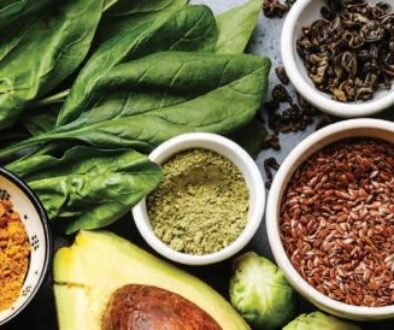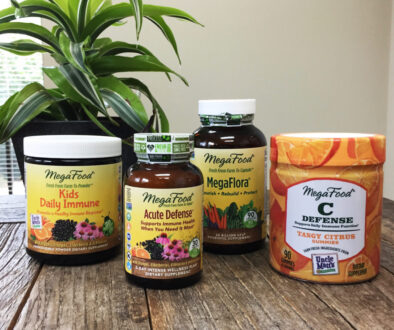Surfing the Tsunami of Demand for Non-GMO Ingredients

At the 2013 Institute of Food Technologists tradeshow, a supplier of non-GMO ingredients told me that the “non-GMO tsunami is coming.”
Based on the growth of the non-GMO market in the past two years, the non-GMO tsunami is here. Sales of Non-GMO Project verified products have topped $11 billion per year; there are now more than 29,500 verified products. According to a report by Food Processing, new products with non-GMO claims increased by 45 percent in 2014.
Large mainstream companies are making non-GMO commitments. Chipotle recently announced that it had completed the transition to non-GMO ingredients in its foods. Ben & Jerry’s is transitioning to non-GMO ingredients in its ice creams. General Mills switched to non-GMO ingredients in its classic Cheerios cereal. Post Cereals’ iconic Grape Nuts is now Non-GMO Project verified. Buttery spreads Boulder Brands’ Smart Balance and Unilever’s “I Can’t Believe It’s Not Butter” are now made from non-GMO ingredients. Hellman’s now has a non-GMO version of its mayonnaise. Earlier this year, Hershey’s announced that it was switching to non-GMO ingredients in its famous Kisses and Milk Chocolate.
Non-GMO supply up 25 percent
With this rapid growth, can the supply of non-GMO grains and ingredients meet the exploding demand? Industry experts say yes. Kellie James, CEO of Mercaris, a market data service for non-GMO and organic grains, said that some non-GMO corn and soybeans are being sold as conventional, or stored in the hopes that premiums or buyers will increase at a later date.
“More farmers have grown than there is demand for,” said James, whose company is trying to fill the need for accurate reporting of non-GMO supply.
Lynn Clarkson, president of Clarkson Grain, agrees. “Supply is up 25 percent, and demand is up 15-20 percent. I don’t think there is a danger of non-GMO supplies running out.”
80 percent growth in demand for non-GMO and organic
Non-GMO ingredient suppliers also report strong demand and supply.
“Demand has been really good and growing,” said Kara VanKleek, marketing director at CHS, Inc., which supplies Non-GMO Project verified soy flours, flakes and oils.
VanKleek sees growing demand for non-GMO soybean oil in the food service industry, which includes hospitals, schools, and quick serve restaurants. She also reports strong demand for non-GMO soy flour from food manufacturers.
CHS doesn’t have supply challenges because it is a farmer owned cooperative and vertically integrated.
“Our farmers will grow whatever is needed,” Van Kleek said.
The Scoular Company also has sufficient non-GMO supplies. “For Non-GMO, we have been able to find supply and have been able to meet the demand,” said Joe Andrus, director of The Scoular Company’s Food Ingredients division, which supplies non-GMO and organic proteins, sweeteners, and oils to food and supplement manufacturers.
Andrus sees 80 percent growth in demand for both non-GMO and organic ingredients.
“Non-GMO is becoming more and more mainstream. It’s still a niche, but it’s coming,” he said.
Nate Yates, business director with Ingredion, sees a tighter supply situation.
“It’s not an unlimited supply. But for what we have wanted, we have not had a challenge sourcing raw material,” he said.
Ingredion sells non-GMO modified starches and sweeteners. Twenty of its products are Non-GMO Project verified.
“We are seeing demand across all food categories,” Yates said.
Debbra DeMarco, vice president of Canada-based Top Health Ingredients, also said interest in non-GMO has increased in the past year.
“In 2013, people were talking about non-GMO but now we are getting calls for non-GMO ingredients. Customers are getting more serious,” said DeMarco, whose company sells non-GMO sweeteners, proteins, and fibers.
Overall, non-GMO ingredients can cost around 20 percent more than their conventional counterparts.
“The increase in price is a function of identity preserving raw material from the farm all the way to the plant. This ranges from 10 percent to 25 percent,” Yates said.
Companies looking to build non-GMO supply chains
The non-GMO supply chain encompasses a wide range from grains, such as corn and soybeans and processed products, such as oils, flours, proteins, and meals, to sweeteners, starches, and minor ingredients such as lecithin, citric acid, enzymes, food colors, and flavors. There are now non-GMO sources for nearly all of those products, and many are becoming Non-GMO Project verified.
Minneapolis-based Captain Drake, LLC is the only supplier of Non-GMO Project verified citric acid, sodium citrate, potassium citrate, and organic cane sugar.
Company president Mark Anderson said demand for his non-GMO citric acid is strong now due to the recent court ruling upholding Vermont’s GMO labeling law.
“Large companies have been resistant but now everyone is trying to find non-GMO ingredients,” he said. “This is the largest and fastest movement I have ever seen in the 45 years I’ve been involved in the food and beverage industry.”
Anderson emphasized that his product, which is derived from sugar cane, doesn’t cost more than conventional citric acid, which is derived from GM corn.
“It’s not true that if food companies switch to non-GMO ingredients, their costs will increase,” he said.
Non-GMO food flavors are also becoming available led by California-based Blue Pacific Flavors, which became the first flavoring company to receive Non-GMO Project verification.
“More companies are looking to build supply chains that simplify the process of going non-GMO,” said CEO Donald Wilkes.
More non-GMO alternatives
Ingredient suppliers are offering more alternatives to GM corn- and soy-based ingredients. Iowa-based World Food Processing recently introduced PURISPea Non-GMO Project verified proteins for use in a wide range of products including protein powders, nutrition bars, and ready-to-drink beverages.
According to Tyler Lorenzen, vice president of business development, peas offer many benefits as an alternative protein.
“Peas are non-GMO, free of allergens, high in starch, and not processed with hexane (a chemical solvent),” he said.
Rice is also being used as a non-GMO protein source. Rice Bran Technologies sells products made from rice bran, including protein, fiber, and oil. The company’s RiBran food ingredient is Non-GMO Project verified.
Rice Bran Technologies’ CEO W. John Short said Non-GMO Project verification helps food manufacturing customers that are also being non-GMO verified.
“It makes the verification process easier because they can source verified ingredients,” he said.
Ingredients derived from sunflowers including oil, lecithin, and vitamin E have also become popular alternatives to GMO-risk soy products.
Rick Robbins, general manager at Colorado Mills, which processes sunflower oil, sees steadily growing interest in sunflower as a non-GMO alternative.
“From what we hear, companies are being asked by their customers: ‘are you using non-GMO products?’ ” he said. “Non-GMO is becoming as important as organic.”
Robbins sees a trend away from soybean oil to sunflower. “Sunflower is a healthier oil and can handle heat much better,” he said.
However, sunflower oil can cost twice as much as conventional soybean oil.
Recommendations for sourcing
Supply chain experts recommend that long-term planning is essential when buying non-GMO ingredients.
“Now is the time for companies to make commitments, not next spring. Good buyers have already made arrangements for next year,” Clarkson said.
Third-party verification of non-GMO ingredient sources is also becoming important, according to Andrus.
“Make sure you can verify your sources,” he said.
Originally published at The Organic and Non-GMO Report


